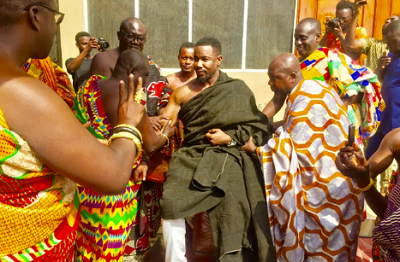
The Diaspora has a lot to offer
The Trans-Atlantic Slave Trade has been described as one of the most dehumanising endeavours in human history.
It was in the course of it that amputations and other extreme and brutal forms of punishment and physical torture were meted out to slaves by their masters, while parents, children and spouses were forced to watch their relatives being treated inhumanely.
The physical and psychological trauma that the slaves went through for about 300 years can only be imagined.
The Trans-Atlantic Slave Trade started when European powers expanded overseas and reached Africa, by which time they had also found their way to the Americas. At that time, sources of labour from the Americas and Europe were found to be insufficient, which led to the gradual growth in the demand for African labour.
For the period that the trade in humans persisted, about 24 million Africans were bundled like ordinary goods and transported across the Atlantic Ocean to Europe and mainly America to work on plantations. It is estimated that more of the slaves than those who lived to be enslaved died when they were being transported to the castles along the West African coast or on the sea and their bodies thrown into the water. Yet many others died shortly on arrival in the New World.
To say the savage nature of the slave trade led to the destruction of individuals and cultures is an understatement. It is against this backdrop that any mention of the obnoxious trade evokes strong emotions, especially among Africans and their kin in the Diaspora.
Ghana (or the then Gold Coast) was at the time the major route for the shipment of the slaves and it has, over the years, instituted programmes that aim to connect the African Diaspora to their roots. This has made our Diasporan siblings have a feel of their roots and identified with their heritage.
To mark the 400th anniversary of the start of the obnoxious practice, Ghana has again taken the lead in drawing the African Diaspora to the country and designated this year as the ‘Year of Return’.
The Daily Graphic acknowledges the important contribution descendants of African slaves have made to the development of the Americas. From science and technology to sports, military prowess, business and diplomacy, the African Diaspora have distinguished themselves.
It is our hope, therefore, that as the country goes through the programme of activities to mark the Year of Return, the conducive atmosphere will be created to make our brothers and sisters to want to return to Ghana and Africa to place their expertise at the disposal of the continent to help in its development. In this vein, we urge all citizens to contribute in their own small ways to make the Year of Return a resounding success.
The government, in our view, can also introduce initiatives that will attract the people. We are happy with efforts by the Ministry of Sanitation and Water Resources to ensure a clean country and we ask that the momentum be sustained to give our visitors fond memories of our country that will make them want to come back.
As we seek to get investment opportunities from our Diasporan brothers, it is our hope that any hindrances in their bid to register and establish businesses will be removed.
One issue that has made our brothers and sisters hold back from returning is the restriction to opportunities as a result of dual citizenship. We are glad that at the Ghana Diaspora Celebration and Third Homecoming Summit, yesterday, the President announced that the government would soon place a bill in Parliament that would make people who hold dual citizenship occupy public office.
The Diaspora certainly has a lot to offer Africa and Ghana and we must continue to do more to attract them to our fold.
